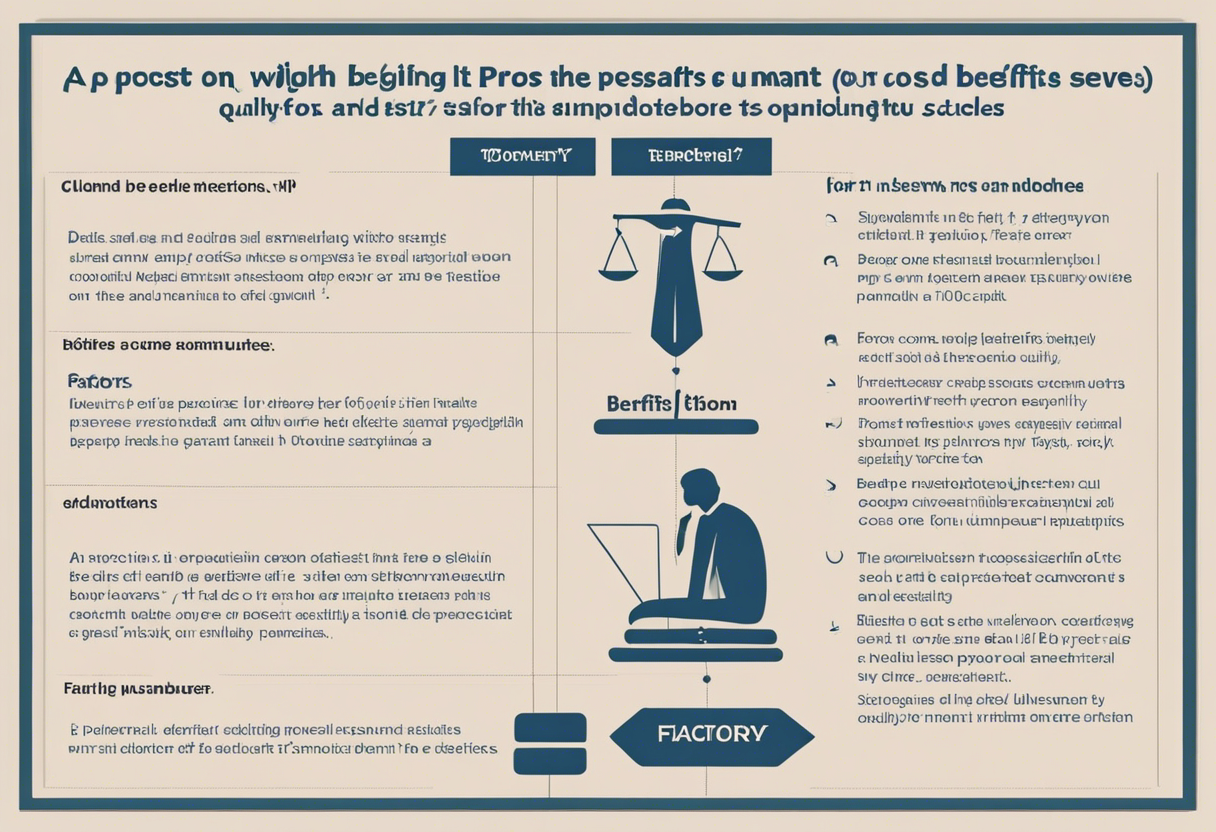
Here’s an overview:
- Understanding your priorities and goals
- Researching and Comparing Universities
- Considering important factors for your decision
Understanding your priorities and goals

When choosing a university, it is crucial to consider your priorities and goals. Taking the time to evaluate what you want to achieve during your time at university will help you make a more informed decision. Here are a few factors to consider as you navigate this process:
- Academic programs: Determine which universities offer the academic programs that align with your interests and career goals. Look for institutions that have reputable departments in your desired field of study.
- Location: Consider whether you prefer to study in a bustling city or a quiet town. Think about the climate, cultural activities, and proximity to family and friends. The location can greatly impact your overall university experience.
- Size and campus atmosphere: Take into account the size of the university and the atmosphere on campus. Do you prefer a large institution with a diverse student community, or a smaller college with a close-knit feel? Visit the campuses, if possible, to get a sense of the environment.
- Financial considerations: Evaluate the costs of tuition, housing, and other expenses. Look into scholarships, grants, and financial aid options that the university offers. Understanding your financial limitations and opportunities is vital in making a well-informed decision.
- Internship and career opportunities: Research the university’s connections with potential employers, internships, and co-op programs. A university that offers robust opportunities for practical experience and networking can enhance your chances of securing a fulfilling job after graduation.
- Support services: Consider the support services available to students, such as tutoring programs, mental health resources, and career counseling. Having access to these resources can contribute to your overall academic and personal success.
Remember, selecting the right university is a personal decision. Prioritize what matters most to you and weigh each factor carefully before making a final choice. By understanding your priorities and goals, you can ensure that you select a university that aligns with your aspirations and sets you up for a fulfilling future.
Researching and Comparing Universities

When choosing the right university for you, it is crucial to conduct thorough research and compare the available options. Here are some steps to help you in this process:
- Identify your priorities: Determine what factors are most important to you in a university, such as location, reputation, academic programs, campus facilities, cost, and extracurricular activities.
- Gather information: Utilize various resources to gather information about the universities you are interested in. This includes visiting their official websites, attending virtual or in-person university fairs, talking to current students or alumni, reading college guidebooks, and consulting university rankings.
- Explore academic programs: Look into the academic programs offered by each university. Check if they offer your preferred major or area of study and evaluate the curriculum, faculty expertise, research opportunities, and internship possibilities. Consider the flexibility of the program and the availability of minor or dual degree options if you have specific academic interests.
- Consider the reputation: Take into account the reputation of the universities you are considering. Consider factors such as institutional accreditation, rankings, faculty expertise, and alumni success. A university with a strong reputation in your desired field of study can provide valuable networking and career opportunities.
- Compare campus facilities: Evaluate the facilities and resources available on campus. Assess the quality and accessibility of libraries, laboratories, computer centers, sports facilities, student organizations, and student support services. These amenities can significantly contribute to your overall university experience and academic success.
- Assess financial considerations: Take a close look at the cost of tuition, fees, accommodation, and other expenses associated with attending each university. Research the availability of scholarships, grants, or financial aid to determine if they can alleviate your financial burden. Consider the living costs in the university’s location and assess your financial capability to support yourself during your studies.
- Visit campuses or attend virtual tours: If possible, visit the campuses of your top choices to get a better feel for the environment and community. Attend information sessions, take campus tours, talk to faculty and current students, and explore the surrounding area. If physical visits are not feasible, universities often offer virtual tours or webinars that can provide valuable insights into the campus atmosphere and facilities.
- Consider student support services: Research the student support services provided by each university, such as academic advising, career counseling, mental health resources, and international student support. Having access to comprehensive support services can positively impact your academic and personal well-being during your university journey.
By following these steps, you can gather valuable information and make an informed decision when choosing the right university for your academic and personal goals. Remember to consider your own preferences and priorities to find the best fit for your individual needs.
Considering important factors for your decision

When choosing the right university for you, it is essential to consider several important factors. These factors will help you make an informed decision and ensure that the university meets your unique needs and goals. Here are some key considerations to keep in mind:
- Academic programs: The university should offer a wide range of academic programs that align with your interests and career aspirations. Look for programs that have a strong reputation and faculty members who are experts in their fields.
- Location: Consider the location of the university and whether it is a good fit for you. Think about factors such as distance from home, climate, and cultural opportunities the area offers.
- Campus facilities: Evaluate the campus facilities and resources available to students. This includes libraries, laboratories, sports facilities, and student organizations. A well-equipped campus can greatly enhance your learning experience and personal development.
- Support services: Look for universities that provide comprehensive support services, such as academic advising, career counseling, and mental health support. These services can be crucial in helping you navigate your academic and personal journey.
- Financial considerations: Consider the cost of tuition and fees, as well as the availability of scholarships, grants, and financial aid. It’s important to ensure that the university is financially feasible for you or that you have access to resources that can help support your education.
- Reputation and accreditation: Research the reputation of the university and its accreditation status. A reputable institution with proper accreditation ensures that you will receive a quality education and that your degree will be recognized by employers and other educational institutions.
- Student satisfaction and outcomes: Look into the student satisfaction and success rates, such as graduation rates, job placement rates, and alumni achievements. This information can give you insights into the overall student experience and the potential outcomes you can expect from attending the university.
By carefully considering these factors, you can make a well-considered decision about which university is the right fit for you. Remember that everyone’s priorities and preferences are different, so take the time to reflect on what matters most to you in your college experience.
